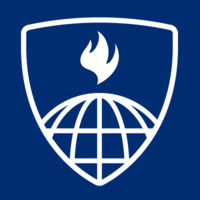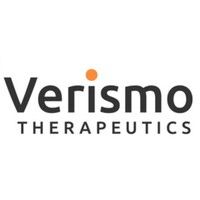预约演示
更新于:2025-05-07
MSLN
更新于:2025-05-07
基本信息
别名 CAK1、CAK1 antigen、Megakaryocyte-potentiating factor + [5] |
简介 Membrane-anchored forms may play a role in cellular adhesion.
Megakaryocyte-potentiating factor (MPF) potentiates megakaryocyte colony formation in vitro. |
关联
174
项与 MSLN 相关的药物靶点 |
作用机制 MSLN抑制剂 [+2] |
在研机构 |
原研机构 |
非在研适应症 |
最高研发阶段临床2期 |
首次获批国家/地区- |
首次获批日期1800-01-20 |
靶点 |
作用机制 MSLN调节剂 |
最高研发阶段临床2期 |
首次获批国家/地区- |
首次获批日期1800-01-20 |
靶点 |
作用机制 MSLN抑制剂 |
在研适应症 |
最高研发阶段临床2期 |
首次获批国家/地区- |
首次获批日期1800-01-20 |
145
项与 MSLN 相关的临床试验NCT06885697
Phase 1 Study With Dose Expansion of the Anti-Mesothelin TNaive/SCM hYP218 (TNhYP218) CAR T Cells in Participants With Mesothelin-Expressing Solid Tumors Including Mesothelioma
Background:
Mesothelioma is an aggressive cancer that grows in the linings of the body; this can include the membranes that line the heart, lungs, and internal organs. Mesothelin (MSLN) is a protein that appears in high numbers in many tumors, including mesothelioma. Researchers are developing a new treatment that collects a person s own immune cells (T cells); the T cells are genetically modified to target and kill tumor cells with high levels of MSLN.
Objective:
To test a new treatment (TNhYP218 CAR T cells) in people with solid tumors including mesothelioma.
Eligibility:
People aged 18 and older with solid tumors including mesothelioma that returned or spread after standard treatment.
Design:
Participants will be screened. A small piece of tissue will be cut from a tumor (biopsy). The sample will be tested to see if it has enough MSLN.
Participants will undergo leukapheresis: Blood will be taken from their body through a vein. The blood will pass through a machine that separates out the T cells. The remaining blood will be returned to the body through a different vein.
Participant s T cells will be modified in a lab to produce TNhYP218 CAR T cells.
Participants will enter the hospital. For 7 days, they will receive drugs to prepare their bodies for the study treatment.
TNhYP218 CAR T cells will be administered into a vein. Participants will remain in the hospital for at least 7 more days.
After discharge, participants will have follow-up visits for 5 years. These visits may include imaging scans, blood and heart tests, and a new biopsy.
Long-term follow-up will continue another 10 years.
Mesothelioma is an aggressive cancer that grows in the linings of the body; this can include the membranes that line the heart, lungs, and internal organs. Mesothelin (MSLN) is a protein that appears in high numbers in many tumors, including mesothelioma. Researchers are developing a new treatment that collects a person s own immune cells (T cells); the T cells are genetically modified to target and kill tumor cells with high levels of MSLN.
Objective:
To test a new treatment (TNhYP218 CAR T cells) in people with solid tumors including mesothelioma.
Eligibility:
People aged 18 and older with solid tumors including mesothelioma that returned or spread after standard treatment.
Design:
Participants will be screened. A small piece of tissue will be cut from a tumor (biopsy). The sample will be tested to see if it has enough MSLN.
Participants will undergo leukapheresis: Blood will be taken from their body through a vein. The blood will pass through a machine that separates out the T cells. The remaining blood will be returned to the body through a different vein.
Participant s T cells will be modified in a lab to produce TNhYP218 CAR T cells.
Participants will enter the hospital. For 7 days, they will receive drugs to prepare their bodies for the study treatment.
TNhYP218 CAR T cells will be administered into a vein. Participants will remain in the hospital for at least 7 more days.
After discharge, participants will have follow-up visits for 5 years. These visits may include imaging scans, blood and heart tests, and a new biopsy.
Long-term follow-up will continue another 10 years.
开始日期2025-06-01 |
申办/合作机构 |
CTIS2024-511119-11-00
- ZWI-ZW171-101
开始日期2025-03-07 |
申办/合作机构 |
NCT06701201
A Long-Term Follow-Up Basket Study for Participants Treated with SynKIR Chimeric Antigen Receptor (CAR) T Cell Product
The primary purpose of this study is to monitor potential long-term risks associated with the administration of SynKIR CAR T cell products.
开始日期2025-01-27 |
申办/合作机构 |
100 项与 MSLN 相关的临床结果
登录后查看更多信息
100 项与 MSLN 相关的转化医学
登录后查看更多信息
0 项与 MSLN 相关的专利(医药)
登录后查看更多信息
2,164
项与 MSLN 相关的文献(医药)2025-06-01·Molecular Therapy Oncology
Systemic therapy with the infectivity-selective oncolytic adenovirus by targeting mesothelin
Article
作者: Miura, Yoshiaki ; Hajeri, Praveensingh ; Roach, Brett ; Yamamoto, Masato ; Sato-Dahlman, Mizuho ; Jacobsen, Kari
2025-05-01·Pathology - Research and Practice
CAR T cells in lung cancer: Targeting tumor-associated antigens to revolutionize immunotherapy
Review
作者: Alenezi, Sattam Khulaif
2025-04-22·Proceedings of the National Academy of Sciences
Cryo-EM structure of the conjugation H-pilus reveals the cyclic nature of the TrhA pilin
Article
作者: Balsalobre, Carlos ; Beis, Konstantinos ; He, Shan ; Seddon, Chloe ; Egelman, Edward H. ; Frankel, Gad ; Wright-Paramio, Olivia ; Ishimoto, Naito ; Clements, Abigail ; Singh, Nanki ; Shirran, Sally ; Wong, Joshua L. C. ; Sonani, Ravi R.
489
项与 MSLN 相关的新闻(医药)2025-05-01
Preclinical data demonstrates unique binding location of CT-95 on mesothelin and avoidance of binding to shed mesothelin
Data supports ongoing Phase 1 clinical trial for CT-95
PHILADELPHIA, PA, USA I April 30, 2025 I
Context Therapeutics Inc. (“Context” or “Company”) (Nasdaq: CNTX), a clinical-stage biopharmaceutical company advancing T cell engaging (“TCE”) bispecific antibodies for solid tumors, today announced preclinical and translational data regarding the Company’s clinical asset, CT-95, a mesothelin x CD3 TCE was presented at the American Association for Cancer Research (AACR) Annual Meeting 2025, taking place April 25-30, 2025 in Chicago, IL.
“There is a high unmet need for effective treatments in mesothelin expressing cancers. CT-95 is affinity tuned and avidity enhanced to concentrate drug activity within the tumor microenvironment,” said Martin Lehr, Chief Executive Officer of Context. “We believe these preclinical and translational data support the clinical strategy to target mesothelin expressing cancers, including pancreatic, ovarian, and mesothelioma. We recently dosed the first patient in our Phase 1 clinical trial of CT-95 and expect to share initial clinical data in mid-2026.”
Findings from preclinical studies evaluating CT-95 in cancer cell lines and tumor models illustrate the potential of CT-95 to treat mesothelin-positive tumors. Notably, CT-95 has shown to:
A copy of the presentation materials can be accessed on the “Publications and Posters” section of the Company’s website at
https://www.contexttherapeutics.com
.
About CT-95
CT-95 is a mesothelin (“MSLN”) x CD3 bispecific antibody that is intended to redirect T-cell-mediated lysis toward malignant cells expressing MSLN. MSLN is a membrane protein overexpressed in approximately 30% of cancers. One challenge in developing MSLN-targeted therapies has been the presence of MSLN fragments, also referred to as shed MSLN, found in both blood and the tumor microenvironment that can serve as a decoy or sink for MSLN-targeting antibodies. CT-95 is a fully humanized bispecific T cell engager that has a moderate affinity but high avidity for membrane-bound MSLN, that is intended to minimize the impact of the shed MSLN. The clinical trial is being conducted at clinical sites in the US. More information about the CT-95 clinical trial (NCT06756035) can be found on
https://clinicaltrials.gov/
.
About Context Therapeutics®
Context Therapeutics Inc. (Nasdaq: CNTX) is a biopharmaceutical company advancing T cell engaging (“TCE”) bispecific antibodies for solid tumors. Context is building an innovative portfolio of TCE bispecific therapeutics, including CTIM-76, a Claudin 6 x CD3 TCE, CT-95, a Mesothelin x CD3 TCE, and CT-202, a Nectin-4 x CD3 TCE. Context is headquartered in Philadelphia. For more information, please visit
www.contexttherapeutics.com
or follow the Company on
X
(formerly Twitter) and
LinkedIn
.
SOURCE:
Context Therapeutics
AACR会议临床1期
2025-04-30
《凉凉》I/O渐微凉 项目落地成霜你在市场观望 耗尽所有泪光不彷徨 趁早遗忘新药赛道凉 前世你怎舍下这一红海茫茫 但估值不温不火不上涨想要退场凉凉项目 为你投入成河BD出海 回报着我浅浅Me-too 临床被人抽前期投入 付东流凉凉技术 包装行业特色褪去伪装 伤情着我破山中贼易 破心中贼难折旧的心 还有几分前司的恨 还有几分前司的恨也曾受内伤 也曾因你回光悠悠研发漫长 怎能浪费时光去临床 去换成长灼灼创新忙 如今愈渐滚烫IPO已在弦上 足够三轮融资回报成双再战临床近日,美国旧金山一家新一代抗体偶联药物(ADC)公司Synthetic Design Lab,获得了2000万美元的种子轮融资。而这家公司的创始人及CEO正是肿瘤免疫领域“泰斗级”人物Daniel S. Chen博士。这一消息不禁令人唏嘘,创新药真是十年河东十年河西。 01 十年河东2013 年Daniel Chen与Ira Mellman共同提出了肿瘤免疫循环(Cancer-Immunity Cycle)的概念(图1),这个循环包括七个步骤:1. 癌细胞抗原的释放;2. 癌症抗原的呈递;3. T细胞的启动和激活;4. T细胞向肿瘤的运输;5. T细胞向肿瘤的浸润;6. T细胞对癌细胞的识别;以及7. 癌细胞的杀伤。这7个步骤可分为两个阶段:准备阶段(T细胞应答),主要发生在淋巴结(LNS);效应阶段(T细胞杀伤),主要发生在肿瘤微环境(TME)。在大多数肿瘤中,癌症免疫循环在这些步骤中的一个或多个被阻断,导致抗癌免疫反应受抑和肿瘤免疫逃逸。图1. Cancer-Immunity Cycle示意图当时,Daniel Chen是罗氏制药癌症免疫疗法开发副总裁兼全球负责人,他曾任霍华德·休斯医学研究所(HHMI)研究员,并曾负责斯坦福大学癌症中心转移性黑色素瘤的临床研究。而Ira Mellman是罗氏制药癌症免疫学副总裁、美国国家科学院院士,曾任耶鲁大学免疫学教授(图2)。图2. Daniel Chen(左)与Ira Mellman(右)十年前的2015年,Keytruda及Opdivo刚刚获批上市,而Tecentriq则刚完成临床3期并取得成功,Tecentriq的临床开发就是由Daniel Chen领导的。肿瘤免疫循环这一概念也逐渐被业内接受,甚至被大多数人奉为圭臬,这也奠定了Daniel Chen与Ira Mellman肿瘤免疫“泰斗”的地位。但随着肿瘤免疫热门靶点,如CD47、Tim3、OX40、4-1BB、CD73、TIGIT,接连在临床上折戟,肿瘤免疫也进入了低谷期。特别是曾被业内寄予厚望的TIGIT单抗临床试验(可以从罗氏临床试验命名SKYSCRAPER看出)的失败直接导致了罗氏制药裁撤了其癌症免疫部门(详见TIGIT的至暗时刻;基因泰克肿瘤免疫之殇),Daniel Chen与Ira Mellman也相继离开了罗氏制药。如今,Daniel Chen成了ADC初创公司的CEO,而Ira Mellman于近日加入了美国Parker Institute for Cancer Immunotherapy (PICI)出任研发总裁,这是一家旨在癌症治疗的科学发现与商业化之间架起桥梁,由世界领先的肿瘤免疫学专家组成的协作联盟的非盈利性质的研究所。如果在十年前,Daniel Chen从罗氏出来创业布局肿瘤免疫,融个几亿美元应该不是难事。而如今Daniel Chen创业选择了ADC赛道从一个侧面暗示:1)肿瘤免疫初创企业已经很难融到钱了;2)Daniel Chen对肿瘤免疫失去了信心;3)ADC仍是一级市场的热点。 02 十年河西2011年及2013年有两款ADC获FDA批准上市,分别是来自Seagen的Adcetris(CD30-MMAE)及Immunogen的Kadcyla(Her2-DM1),掀起了一轮ADC研发热潮(图3)。当时,几乎所有的MNC都与Seagen或Immunogen合作开发ADC药物。图3. FDA批准ADC药物时间线但很快大家发现,以微管抑制剂为Payload的ADC治疗实体瘤的失败率很高,事实上当时推上临床的大部分实体瘤ADC都失败了,比如靶向5T4的ADC(PF-06263507)、靶向EphA2的ADC(MEDI-547)、靶向Mesothelin的ADC(BAY94-9343)等等。这让很多药企很快对ADC丧失了信心,包括罗氏在内的众多MNC纷纷放弃了早期ADC管线。2015年9月,DS-8201进入临床1期试验,那时应该很少有人注意到这个分子,但历史的车轮已经开始悄悄转动。2019年12月,DS-8201在美国获批上市,适应症为Her2阳性乳腺癌。而此后,DS-8201更是一路披荆斩棘,不仅在传统适应症上对Kadcyla形成碾压优势,还开辟了乳腺癌Her2低表达甚至超低表达这些亚型的适应症。而那些具有敏锐嗅觉的中国药企在DS-8201获批上市前就已经开始了Fast follow的脚步并一跃成为ADC行业的领导者,如恒瑞、映恩生物、宜联生物、科伦博泰等等,其ADC管线产品已经成功引起MNC的关注并达成多项合作交易。谁能想到,十年前在ADC领域还默默无闻的第一三共通过消化吸收Seagen的技术结合罗氏的Herceptin及自己在TOPO1i方面的技术积累产生了DS-8201而成为了ADC行业的领导者并成功带领行业实现了跨代升级。再次感叹,创新药真是十年河东十年河西。 03 未来十年未来十年是否会出现一个新的Modality成为市场的新宠,答案是肯定的,但只是也许它还没有浮出水面。近日,阿斯利康/第一三共宣布,DS-8201联合帕妥珠单抗,在HER2阳性乳腺癌一线治疗的三期临床试验中,无进展生存期(PFS)显著优于当前一线标准治疗方案(紫杉烷+曲妥珠单抗+帕妥珠单抗,THP),总生存期(OS)也呈现出积极趋势。DS-8201联合帕妥珠单抗有望成为乳腺癌一线治疗,其市场空间也将进一步放大,甚至可能成为首个百亿美元ADC分子。与此同时,吉利德宣布其靶向Trop-2的ADC药物Trodelvy与默沙东PD-1抑制剂Keytruda联合疗法在 3 期临床试验 ASCENT-04/KEYNOTE-D19 中取得积极的顶线结果。分析显示,该试验达到主要终点,Trodelvy联合Keytruda,与Keytruda联合化疗相比,在临床上显著改善不可手术切除的局部晚期或转移性三阴性乳腺癌(mTNBC)且肿瘤表达 PD-L1(CPS≥10)的患者的无进展生存期(PFS)。未来十年,我们将看到越来越多的ADC与抗体(特别是肿瘤免疫抗体)联合治疗实体瘤进入临床试验并取得成功。我们也将看到更多跨Modality的药物联合治疗多种疾病。共建Biomedical创新生态圈!如何加入BiG会员?
临床3期免疫疗法抗体药物偶联物IPO
2025-04-30
·医药速览
T细胞和NK细胞杀伤肿瘤功能不相同,如果把NK细胞的功能添加到T细胞上,或者CART细胞上,能不能让T杀伤癌细胞能力增强呢?3月21日,《Science Immunology》一篇标题为:DNMT1 inhibition reprograms T cells to NK-like cells with potent antitumor activity 的文章,研究了DNMT1(DNA甲基转移酶1)在维持T细胞特性和抑制其向自然杀伤(NK)样细胞转变中的关键作用。通过抑制DNMT1,研究人员成功将T细胞(包括CAR-T细胞)重编程为具有增强抗肿瘤活性的NK样细胞,体外体内杀伤肿瘤能力显著增强。此前研究表明,转录因子BCL11B的失活可以将T细胞重编程为诱导型T到NK细胞(ITNKs),展现出抗肿瘤活性。然而,BCL11B是如何抑制自然杀伤(NK)细胞转录程序的分子机制尚不清楚。蛋白质组学分析发现,BCL11B在T细胞中与DNMT1和UHRF1形成复合物,共同维持DNA甲基化状态。这一表观遗传机制对抑制NK细胞相关基因的表达至关重要。敲除DNMT1或UHRF1会导致T细胞中NK细胞标志物NKp30和NKp46的显著上调,表明UHRF1-DNMT1轴在维持T细胞特性方面的重要作用。使用非核苷类DNMT1选择性抑制剂GSK3484862(GSK862)处理CD4和CD8 T细胞后,这些细胞表现出NK细胞特征,包括NKp30和NKp46的表达上调。类似地,FDA批准的泛DNMT抑制剂地西他滨(DAC)也能在原代人T细胞中诱导NK细胞标志物的表达。这些结果表明,通过化学手段干预DNMT1/UHRF1轴,可以有效模拟BCL11B缺失的效应,为T细胞重编程提供了一种高效且可控的策略。敲除DNMT1或UHRF1以及使用GSK862处理的T细胞在UMAP空间中形成独特的细胞簇,这些细胞表现出NK细胞标志物(如NKp30、NKp46)的上调和T细胞特异性转录因子TCF7的下调,同时还显著增加了杀伤细胞免疫球蛋白样受体(KIRs)家族成员(如KIR3DL1、KIR2DL2/L3/S2、KIR2DS1)和NKp44的表达。此外,DNMT1抑制上调了CD94和NKG2A,但未诱导NK细胞激活受体NKG2C或ADCC相关受体CD16的表达。部分NK细胞相关基因(如SIGLEC7、TYROBP、KIR家族成员)在DNMT1/UHRF1抑制组中显著上调,而在BCL11B缺失组中无明显变化,而另一些基因(如IL18R1、NCAM1、ZNF683)则更倾向于在BCL11B缺失时上调。这些数据表明,抑制维持性DNA甲基化和敲除BCL11B虽然都能诱导T细胞向NK样细胞转化,但两者调控的基因网络存在显著差异,展现了共享和独特的转录特征。抑制DNMT1生成的NK样细胞展现出比BCL11B缺失ITNKs更强的细胞毒性,可能归因于其分泌更高水平的干扰素-γ(IFN-γ)、颗粒酶A/B、颗粒溶素和穿孔素。抗体阻断实验进一步证实,NKp30和NKp46在NK样细胞对K562细胞的杀伤中起关键作用。这些NK样细胞能够通过NCRs和TCRs识别多种癌细胞系,例如有效裂解表达OKT3的NALM6细胞,而对野生型NALM6无显著作用。这表明,DNMT1抑制重编程的NK样细胞兼具天然免疫和适应性免疫的双重识别能力。NK样细胞在体内展现优异抗肿瘤活性,并可通过CAR工程化增强特异性 。在免疫缺陷NSI小鼠模型中评估了NK样细胞对HepG2和K562异种移植瘤的抗肿瘤效果。结果显示,与BCL11B缺失ITNKs相比,由DNMT1抑制或GSK862处理生成的NK样细胞在两种模型中均更显著地抑制肿瘤生长并延长小鼠生存期。肿瘤浸润的NK样细胞高表达活化标志物CD69,而PD1和LAG3的表达水平低于对照组。体外扩增和再刺激后,这些细胞分泌更高水平的颗粒酶B和颗粒溶素。为提高肿瘤识别特异性,研究将抗CD19或抗间皮素(MSLN)CAR转导入GSK862处理的NK样细胞中,结果表明这些CAR-NK样细胞在体内外均展现出优于传统CAR-T细胞的抗肿瘤活性。这些数据证明,DNMT1抑制重编程的NK样细胞不仅具备强效抗肿瘤能力,还可通过CAR工程化实现靶向治疗,进一步增强其临床应用潜力。DNMT1的非酶功能通过稳定BCL11B抑制T细胞向NK样细胞重编程 。研究发现,DNMT1与BCL11B相互作用,并通过其非酶功能维持BCL11B的蛋白稳定性,从而支持T细胞特性。DNMT1-BCL11B相互作用在抑制T细胞向NK样细胞重编程中的关键作用 。GSK862处理显著上调CD4和CD8 T细胞中NKp30和NKp46的表达,但外源性过表达BCL11B能够部分逆转这一效应。这表明,DNMT1通过与BCL11B的物理相互作用维持其稳定性,从而抑制T细胞向NK样细胞的转化。进一步发现,抑制DNMT1和EZH2可协同重编程T细胞,增强NK样细胞的生成和抗肿瘤活性。DNA甲基化和H3K27me3共同抑制NK细胞相关基因的表达,而联合使用DNMT1抑制剂(如GSK862)和EZH2抑制剂(如EPZ6438)可显著解除这种抑制,促进NK细胞特异性基因的表达和染色质开放性。这种协同作用通过激活NK细胞相关信号通路(如细胞毒性因子和免疫调控基因)实现,从而提升T细胞向NK样细胞的转化效率及其抗肿瘤功能。这些结果表明,DNA甲基化和H3K27me3是防止T细胞转变为NK样细胞的双重保障机制。最后,这项研究揭示了DNMT1在维持T细胞特性和抑制NK细胞程序中的关键分子机制,并提出了通过使用表观遗传抑制剂(特别是DNMT1抑制剂,以及与EZH2抑制剂联合使用)将T细胞转化为具有增强抗肿瘤活性的NK样细胞的新策略,为癌症免疫治疗提供了新的思路和潜在的细胞来源。参考资料:Yao Li et al. ,DNMT1 inhibition reprograms T cells to NK-like cells with potent antitumor activity.Sci. Immunol.10,eadm8251(2025).DOI:10.1126/sciimmunol.adm8251推文用于传递知识,如因版权等有疑问,请于本文刊发30日内联系医药速览。原创内容未经授权,禁止转载至其他平台。有问题可发邮件至yong_wang@pku.edu.cn获取更多信息。©2021 医药速览 保留所有权利往期链接“小小疫苗”养成记 | 医药公司管线盘点 人人学懂免疫学| 人人学懂免疫学(语音版)综述文章解读 | 文献略读 | 医学科普|医药前沿笔记PROTAC技术| 抗体药物| 抗体药物偶联-ADC核酸疫苗 | CAR技术| 化学生物学温馨提示医药速览公众号目前已经有近12个交流群(好学,有趣且奔波于医药圈人才聚集于此)。进群加作者微信(yiyaoxueshu666)或者扫描公众号二维码添加作者,备注“姓名/昵称-企业/高校-具体研究领域/专业”,此群仅为科研交流群,非诚勿扰。简单操作即可星标⭐️医药速览,第一时间收到我们的推送①点击标题下方“医药速览” ②至右上角“...” ③点击“设为星标
细胞疗法免疫疗法临床研究
分析
对领域进行一次全面的分析。
登录
或

生物医药百科问答
全新生物医药AI Agent 覆盖科研全链路,让突破性发现快人一步
立即开始免费试用!
智慧芽新药情报库是智慧芽专为生命科学人士构建的基于AI的创新药情报平台,助您全方位提升您的研发与决策效率。
立即开始数据试用!
智慧芽新药库数据也通过智慧芽数据服务平台,以API或者数据包形式对外开放,助您更加充分利用智慧芽新药情报信息。
生物序列数据库
生物药研发创新
免费使用
化学结构数据库
小分子化药研发创新
免费使用




